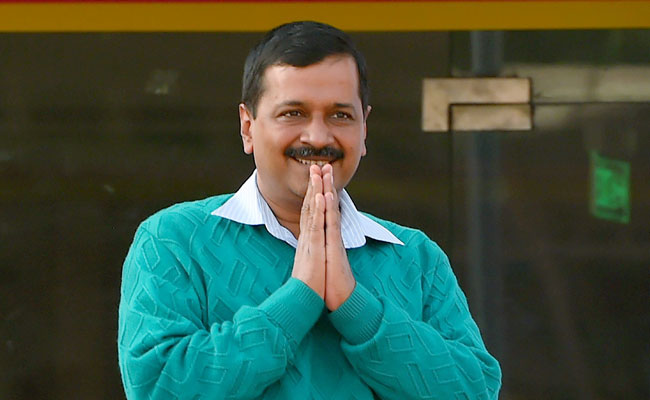
Just out of the electoral setback in Punjab and Goa, Delhi Chief Minister Arvind Kejriwal's next big challenge, the municipal elections in the national capital, is round the corner. Mr Kejriwal's Aam Aadmi Party needs to wrest control over the three municipal corporations from the BJP - that is looking for a third consecutive term - not just to make it easier to deliver on the state government's mandate but also signal that he still had the popular support from the electorate in Delhi who had given him 67 out of 70 seats just two years earlier. But the April 23 vote is a lot more than just a battle of survival for Delhi's political parties. It will determine the quality of life that residents would lead.
Here is your guide to Delhi's municipal bodies and the elections:
In all, 272 municipal councillors are going to be elected on a five-year term in the April 22 polls to the national capital's three big municipal corporations; one each for North Delhi (104 seats), South Delhi (104 seats) and East Delhi (64 seats). Of these, 114 are reserved for women.
Each seat, called a ward, approximately covers a population of 60,000 voters. Because the government has just reworked the boundaries of these wards, the shape and size of most constituencies has changed since the last election in 2012.
The three corporations were created in 2012 when they were carved out the humongous, erstwhile Municipal Corporation of Delhi, which covered 94 per cent of Delhi's 1484 sq km. It was hoped that smaller corporations would be more efficient and manageable that the monolithic corporation, among the largest in the world.
The BJP had won all three in the 2012 elections, scoring a clear victory in East and North Delhi corporations. In South Delhi, it had to rope in some independents. The Congress came second in all three while the Bahujan Samaj Party (BSP) was a distant third.
The 2017 election, however, will be a different ball game with AAP debuting in the full-fledged municipal polls. Apart from the three major players, BJP, Congress and the BSP, the Yogendra Yadav-led Swaraj India is also hoping to make its mark this time.
The BJP, which is desperate to retain its tight control on the councillors, has decided not to field its councillors again. The BJP's calculation is that this would help limit the anti-incumbency factor and let their candidates fight on a clean slate.
The municipal corporations, each headed by a Mayor selected every year, are mandated to provide sanitation services such as sweeping streets, running primary schools, enforcing building rules, running municipal hospitals and keeping the mosquitos under check.
In contrast, the Delhi Development Authority has the mandate to plan for the capital's housing demands, acquire and manage land for the Centre and draft the city's master plan. It too does enforce building rules but only in a small part of the Capital.
The municipal corporations work more closely with the Delhi Government than, say the DDA which is headed by Lieutenant Governor Anil Baijal. Most of the municipal funds, to supplement revenues generated by them, are routed through the state government, but the Lieutenant Governor - Delhi's super boss - always has the last word.
Counting of the votes cast in 13,234 polling stations across the three corporations will be held on April 25. The results will be out the same day as State Election Commissioner SK Srivastava has ruled out paper ballots, and stuck to Electronic Voting Machines. But this time, voters in the civic body polls will also have the right to reject all voters, and go for Nota (None of the above).

